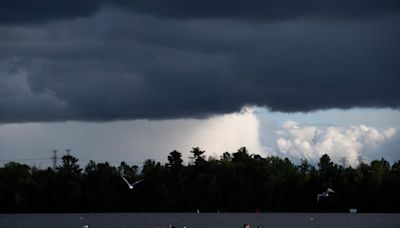Search results
Quebec (French: Québec ⓘ) is one of the thirteen provinces and territories of Canada.It is the largest province by area and the second-largest by population.Much of the population lives in urban areas along the St. Lawrence River, between its most populous city, Montreal, and the provincial capital, Quebec City.
- Overview
- History
Quebec, city, port, and capital of Quebec province, Canada. One of the oldest cities in Canada—having celebrated its 400th anniversary in 2008—Quebec city has a distinct old-world character and charm. It is the only remaining walled city in North America north of Mexico and was recognized as a UNESCO World Heritage site in 1985. Among its other dis...
The first European to visit the area was French explorer Jacques Cartier, who was seeking a route to Asia as well as searching for valuable minerals such as gold and diamonds. On his second voyage to North America, he sailed up the St. Lawrence in 1535 and wintered in the Huron Indian village of Stadacona (the site of modern Quebec city). Cartier made a third and final trip to the region in 1541, bringing settlers to establish a French colony at Stadacona, though they abandoned this effort after a couple of years. It was not until furs became an exceptionally valuable commodity by 1600 that the French renewed their interest in maintaining control of New France. In 1608 Samuel de Champlain installed the first permanent base in Canada at Quebec, which grew as a fortified fur-trading post. The St. Lawrence and its tributaries gave the French the best access to the interior of North America and control over the fur trade, an advantage that the British wanted to gain. Quebec, the guardian of New France, was under constant threat. In 1629 it was captured by the British, who held it until 1632, when the Treaty of Saint-Germain-en-Laye restored it to France. There were other attempts by the British to capture this stronghold, but all failed until the famous Battle of Quebec on the Plains of Abraham (adjacent to the city) in 1759, in which the French were defeated. Shortly thereafter most of the French-held territory in North America was ceded to Great Britain by the Treaty of Paris in 1763.
Warfare in the region did not end with the capture of New France, however. Britain reinforced the military defenses of the city in time to repel an attack during the American Revolution in the second Battle of Quebec in 1775. The breakaway of the United States from British North America had important cultural, economic, and political implications for Quebec. Under the Quebec Act of 1774, French Canadians retained their language, religion, and other cultural institutions, which therefore allowed Quebec city to remain a centre of French culture. With the arrival of displaced Loyalists following American independence, settlement (mostly west of Quebec) increased, and so did trade with Britain, much of it through the port of Quebec, thus elevating the city’s economic status. The increase in an English-speaking population contributed to the British Parliament’s passage of the Constitutional Act (1791), which split the large colony of Quebec into two provinces: Upper Canada (now the province of Ontario) and Lower Canada (now the province of Quebec). Quebec city, formerly the capital of the colony, remained the capital of Lower Canada. It was incorporated in 1832 and was given its actual charter in 1840, the year that Parliament voted to rejoin Upper and Lower Canada as the Province of Canada. In 1864 the city was the site of the conference of British North American colonies convened to plan the confederation of Canada, which was achieved in 1867, following passage of the British North America Act.
- Brett Mcgillivray
Sep 13, 2023 · The name “Quebec” finds its roots in the Algonquin (Anishinaabe) language, which was spoken by indigenous people in the region long before European settlers arrived. In Algonquin, “Quebec” referred to a strait, and this designation had profound geographic significance.
Sep 18, 2020 · The origins of the name Quebec comes can be traced back to the Algonquin word for “narrow passage” or “strait.” The term was first used to describe the narrowing of the St. Lawrence River near what is now Quebec City, which became the focal point of subsequent European contact and colonization.
Sep 30, 2007 · The name Quebec was inspired by an Algonquian word meaning “where the river narrows.” The French in New France used it solely to refer to the city of Quebec. The British were the first to use the name in a broader sense. Geography. Physiographic Regions. The province of Quebec is composed of three of Canada’s seven physiographic regions.
French explorer Samuel de Champlain. The origins of Quebec go back to 1534–35, when the French explorer Jacques Cartier landed at present-day Gaspé and took possession of the land in the name of the king of France.
May 13, 2008 · The name "Quebec" is probably derived from an Algonquian word meaning "narrowing of the river." Settlement. For several thousand years prior to the arrival of the Europeans, the site of Quebec City was occupied by Indigenous hunters and fishermen.






